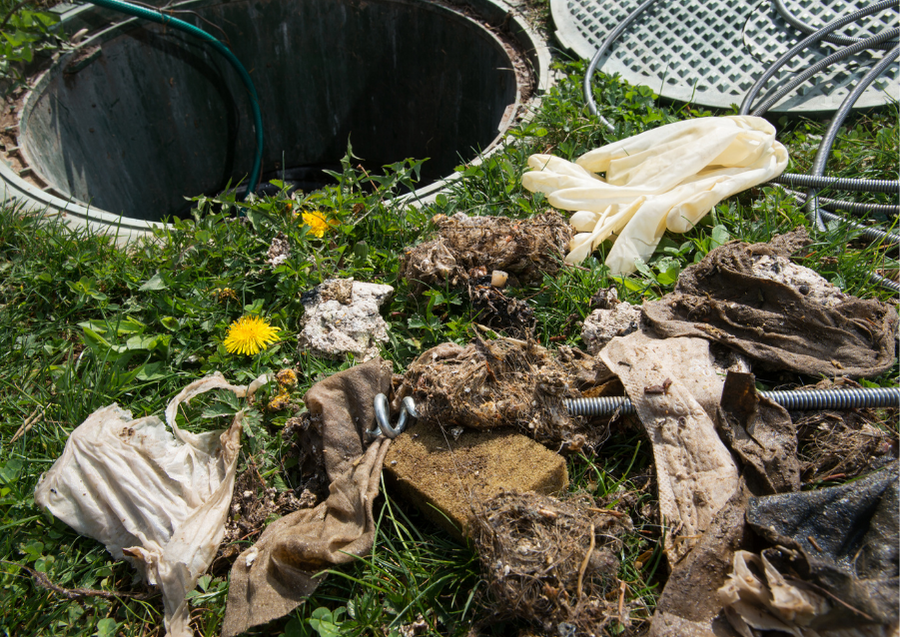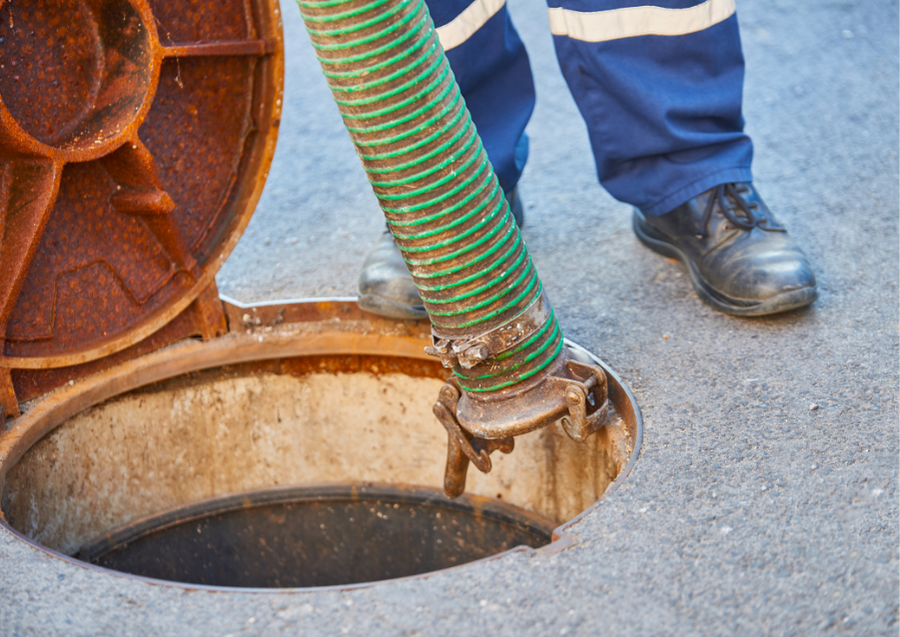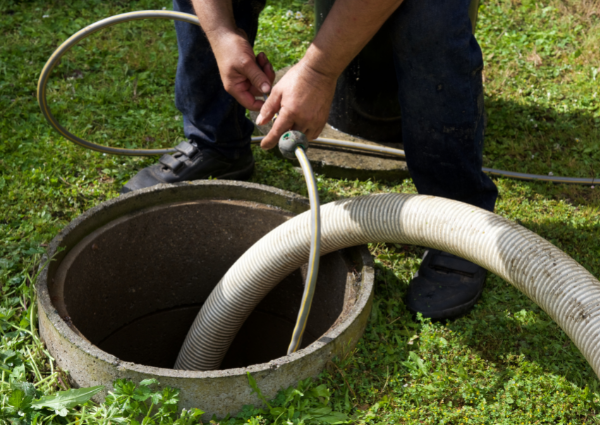
A septic system is an underground and self-contained wastewater treatment system. It’s mostly used in rural areas when homes are far away from centralized sewage systems. Traditionally, they are installed in the homeowner’s backyard and don’t require sewer lines, so they’re not very disruptive to the environment.
The system is highly effective, but it can break. Prevention is crucial here. Therefore, you should never put anything other than natural waste and water down the drain. Avoid chemical drain cleaners when you do get clogged drains. Instead, you should only utilize a septic-safe drain cleaner.
Our tips below can help you how to unclog septic tank properly.
5 Tips On How To Unclog Septic Tank Safely

1. Check the Inlet Pipes
Find the concrete or plastic cover in the yard close to your house. Lift the lid from the septic tank and look inside for a green or white pipe on the side. Check and see if something blocks the end. A clogged drain pipe might be causing the issue.
If water levels are below that inlet pipe, the clogged drain pipe might be between the home and the septic tank. However, if the water levels are over the inlet and nothing’s blocking the end, you may have a clog in your leach field.
2. Use a Stick or Pole
A scum layer might build up on top of your septic tank. You can use a solid piece of metal or wood to move it down or to the side of your pipe. Push as much scum away as you can. Make sure to wear gloves while doing this. You know you’ve fixed the clogged drain when water flows out of the pipe.
3. Probe If Necessary
If you’ve got a clogged drain deeper into the plumbing system, feed your pole or stick into the pipe as far as possible. Scrape around the sides and pull out waste, adding it to the tank.
4. Try a Mechanical Auger
Feed the mechanical auger’s cutting blade into the end of your pipe about 1 to 2 feet. Plug it in and turn it on (forward). Continue pushing it deeper inside to break apart the clog, holding the line firmly.
5. Ask Help From a Licensed Plumber
Sometimes, you can’t get the clog to loosen so that the septic tank works properly again. In this case, it’s best to call a plumber because you might need your septic tank pumped.
The plumber can determine why clogging continues happening and see if there are issues with drainage. From there, they might recommend routine maintenance on each drain to prevent future problems, including septic tank leakage.
FAQs About Clogged Septic Systems
How Do You Clear a Blocked Septic System or Tank?
Septic tank clogs shouldn’t be fixed by people with no training or appropriate tools. It’s always best to call a plumber to correct the problem.
However, you can fix clogs in your pipes, so if you think that’s the issue, try the following:
- Baking soda and vinegar – Sprinkle baking soda down the drain and dump about one-half cup of vinegar into the pipe. Let it sit for a few hours and flush with hot water. This works well for small clogs.
- No chemical drain cleaners – The harsh chemicals can damage the tank and components of the system. In fact, a chemical drain cleaner kills beneficial bacteria in the tank, which might lead to another clog.
[Read: How Much Does Septic Tank Repair Cost in Arizona?]
How Often Should a Septic Tank Be Pumped Out?
The septic tank pumping frequency varies depending on many factors but on average, it must be done every two to three years. As part of the maintenance, septic system inspections should be done by a professional plumber at least once every three years.
[Read: Ultimate Guide To Septic Pumping and Tank Maintenance]
How Do I Know If My Septic Line Is Clogged?
When a septic tank starts to clog, many homeowners believe that there’s something in the pipe. If the lower drains are all slow simultaneously, the issue is the tank. These often include basement floor and shower drains, and you may also hear odd noises.
Local clogs generally affect a few fixtures. The toilet might be slow, and the connected sink may also show signs of trouble.
Why Do the Drains Clog from Septic Tank Backing Up?

Septic tanks sit under the ground and hold water. The wastewater from your house drains into it, slowly filling up. Generally, the inlet is often at the top, and there’s a pipe going into the yard, often called a drain field.
When the water in the tank reaches a particular level, it moves through an outlet pipe and into the ground. Soil filters the bacteria out, so it’s clean.
If your drain field gets clogged, your tank fills up and doesn’t drain the water. Water backs up into the house. As that happens, fixtures can’t drain properly.
When you have a completely clogged septic system, the water backs up into your house fast, leading to waste inside your home.
Sounds Complicated? Call Stellar Plumbing Now!

Diagnosing and fixing septic system problems can be overwhelming if you’re not equipped with the necessary tools and knowledge. It’s best to leave the job to the professionals for your safety and convenience.
Stellar Plumbing works with various septic systems, so we understand the issues you might face. When you notice a problem with backups into the home, it’s best to get to the root of the problem.
Try the tips listed in this guide. If those don’t work, call us at (928) 533-3446 to request septic tank and drain cleaning services. We can get your septic system running correctly and eliminate any clogs!
